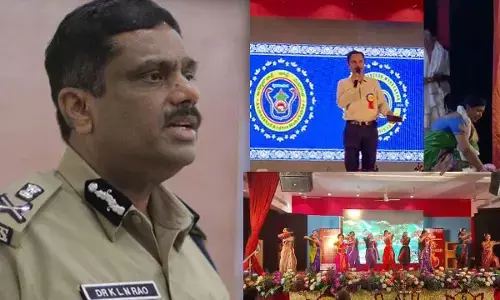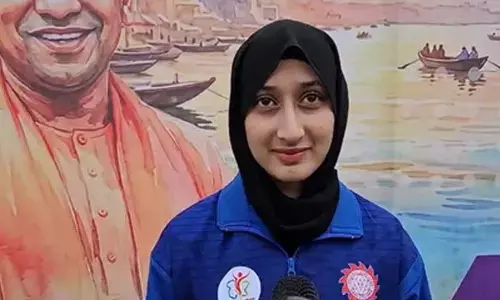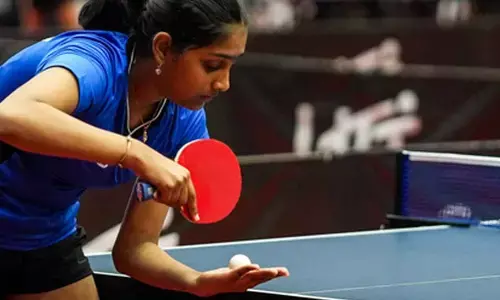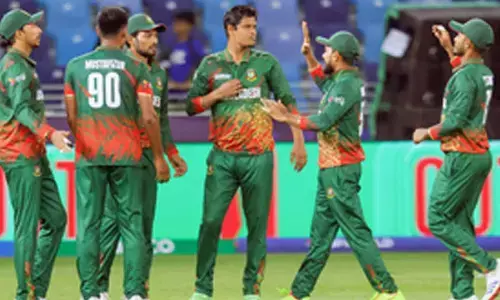Kargil Vijay Diwas Today: War hero recalls heroics of Gorkha Rifles
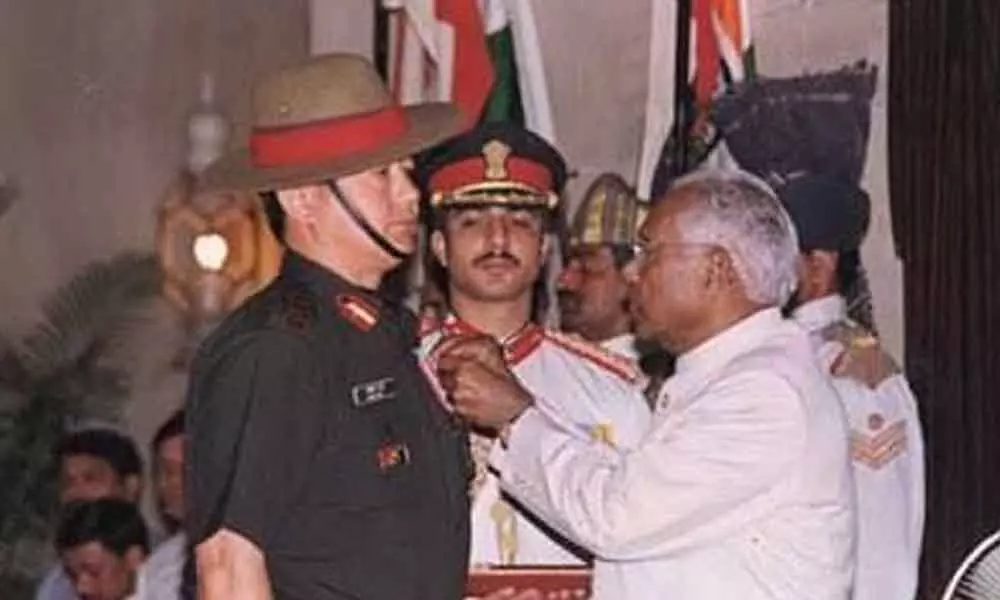
Col Rai was awarded the Vir Chakra
Twenty two years ago India evicted the Pakistan Army’s Northern Light Infantry from the daunting heights of Batalik, Dras, Kaksar and Mushkoh in the 1999 Kargil conflict.
Bengaluru: Twenty two years ago India evicted the Pakistan Army's Northern Light Infantry from the daunting heights of Batalik, Dras, Kaksar and Mushkoh in the 1999 Kargil conflict.
Within a month of returning from Siachen, the men of 1/11 Gorkha Rifles infantry battalion were asked to move back to Jammu and Kashmir. Since they were acclimatised it was a prudent decision to push them into the battle.
1/11 GR was one of the first units to be sent to the Batalik sector Colonel Lalit Rai (VrC), the commanding officer (CO) of the 1st battalion of the 11 Gorkha Rifles, was commanding the 17 Rashtriya Rifles. One evening after returning from the ambush he was taking rest when he got a call from the Colonel of the Regiment who apprised him that the previous CO of 1/11 GR had taken a premature retirement and the battalion was in the thick of the battle. "Would you like to take over the fight and do something about it?'
"Without any hesitation I said yes, it would be a privilege as the battalion that I was to lead was 1/11 GR, the one my father had been commissioned into," he recalls.
The information about the enemy was inadequate, terrain was new and the situation was enviable. 1/11 GR was already acclimatised; it was thought that they could be sent directly for the operations. Within no time Rai was moved by a helicopter to the battle zone.
The moment he landed at the base there was heavy shelling and his reception party ran hellter skelter.
Rai led his men from the front. However, it is imperative for the commanders to boost the morale of the soldiers.
"Soldiers always look up to good commanders. I landed up and took over my battalion on June 2, 1999 and led them into one of the fiercest battles of the Kargil in the Batalik sector on July 2, 1999. In this one month, I hardly slept 2-3 hrs. Every morning I used to visit every single post spread, trench which were spread over kms and tell my men that together we would do it.
I organised proper administration, logistics and ammunition, and hot meals as far as possible for them. Slowly morale was built up and they had the faith that this fellow meant business. I am proud to tell them that my Gurkha boys never gave me a chance to think twice, they were high on josh," he tells The Hans India.
Rai proudly says the soldiers were ready to give away their lives not for any materialistic gain but they believed that it was their duty to fight for the nation. " I believe in the Karmayogi philosophy so I did not have to motivate them but they knew that it was their bounden duty towards the nation. This is deeply ingrained in our system through training and grooming," he says.
Talking about Captain Manoj Pandey (Param Vir Chakra) Rai states that in any battalion it is always the team work and not an individual and even within the team some people shine. "So Manoj Pandey was one of them.
He was not very tall but I always say that he walks very tall amongst the bravest of the brave. He was a very jovial, helpful kind of a guy who came from a modest beginning and even right from the beginning he was so focused. He did a great job during the Jubar and Khalubar operations.
Amidst the Machine gun firing where my boys were being felled to the bullets, cries, bodies being torn apart and I was absolutely in too much of a doubt. There was much pressure as a CO. We saw a lot of fire coming from the bunker area. Manoj was closest so I sent him with his platoon to finish the job and without any hesitation he said, "Yes, sir I will do it."
1000 rounds were being pounded per minute and two bullets hitting the chest means there is no chest at all. He charged in this scenario and cleared three bunkers and while moving towards the last one he got a bullet in the thigh and one bullet on his shoulders.
He was asked by the boys not to move ahead but he said that the CO had reposed faith in me and he would give the victory call. He threw a grenade to clear the last sangar. There was a spurt of fire and three bullets went through his helmet and his skull was splattered. He went fighting till his last breath and before he fell he told his men: Na Chodnu (Don't leave them)," Rai narrates.
Even today Rai gets nightmares of the battlefield.
"The sight of my boys battered, torn and ripped apart by machine gun fire, bleeding profusely, still haunts me, and I often wake up sweating and gasping for air from such nightmares. I had a bullet injury. What if i had not been able to make it back so this 'what if' kind of a situation haunts me.
The images of the fallen soldiers asking on why such orders were given still come to me. For the army it's just one person less but for the family their whole world is finished. Initial stages, I had sleepless nights because as a CO you were responsible for whatever happened," he remembers.
However, amidst these bullets and blood splattered all over there were lighter moments which kept the battalion going.
"Snow boots were given to us and in all armies of the world there are only two sizes, either small or big. My size is 8 and I was given a boot of 10 and a half sizes.
My boys said that Sahab itne bade attack ke liye jaa rahe hai joote to acche milne chaiye naa (We are going for such a big attack, at least shoes should be good. I told them beta, don't worry. The fire becomes more accurate once we get closer to the enemy.
A machine gun burst came in front of me. Two bullets had gone through my toe but it did not touch my toe because there was so much of a gap left. I told my boys around dekha kuch nahin hua army jo karti hai soch samajh ke karti hai (See nothing happened to me, whatever army does they do it right)," Rai laughs.








